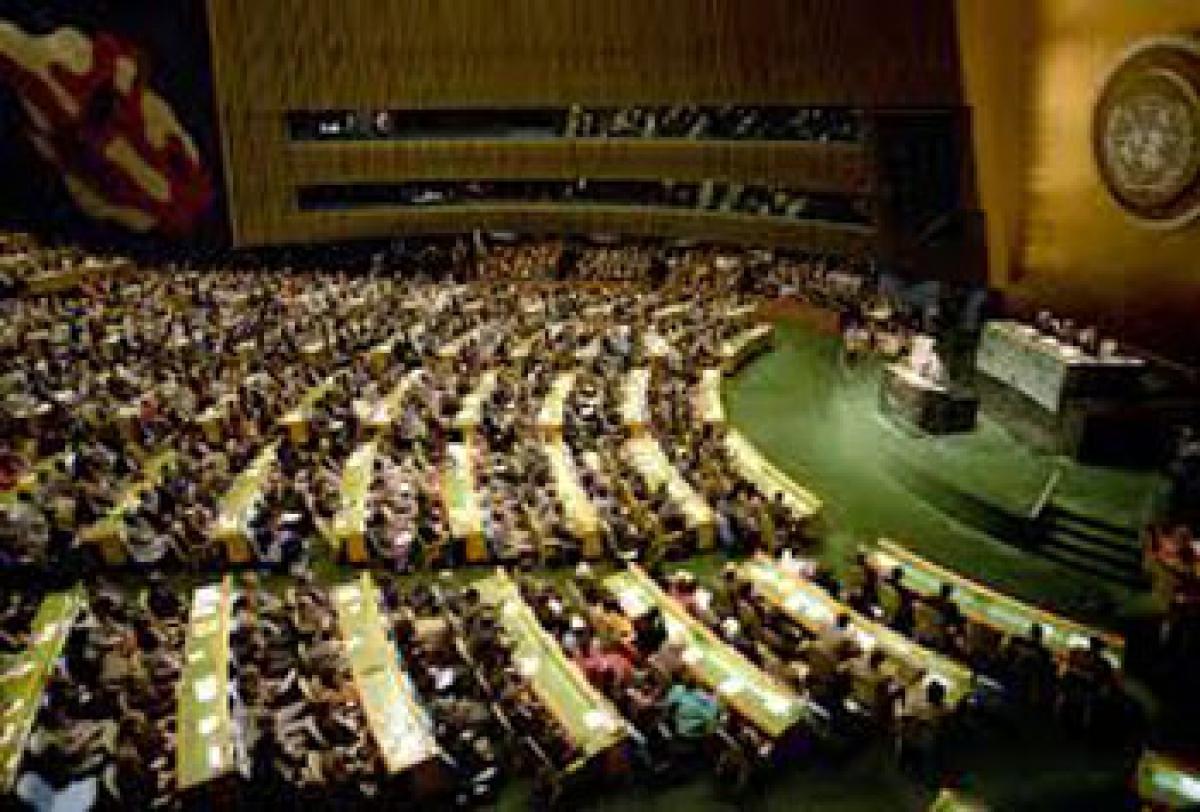Live
- District Collector Encourages Students to Utilize Government Facilities for a Better Future
- Per capita availability of fruits, vegetables increases in India
- FII buying reaches Rs 22,765 crore in Dec as economic growth stays resilient
- National Energy Conservation Day 2024: Date, Importance, and Easy Ways to Save Energy
- Gastronomic trouble: After 'disappearing' samosas Himachal CM in row over red jungle fowl
- Meaningful dialogue a priceless jewel of democracy: Jagdeep Dhankhar
- CM Revanth Reddy Advocates for Gurukuls as Talent Development Centers
- Zepto’s expenses surge over 71 pc in FY24, losses at Rs 1,248 crore
- Tim Southee matches Chris Gayle's six-hitting record in his farewell Test
- AP Mnister Ponguru Narayana Inspects Highway Connectivity Roads to Amaravati





.jpg) United Nations:
United Nations:



